Stephan Leitner
Balancing Consumer and Business Value of Recommender Systems: A Simulation-based Analysis
Mar 10, 2022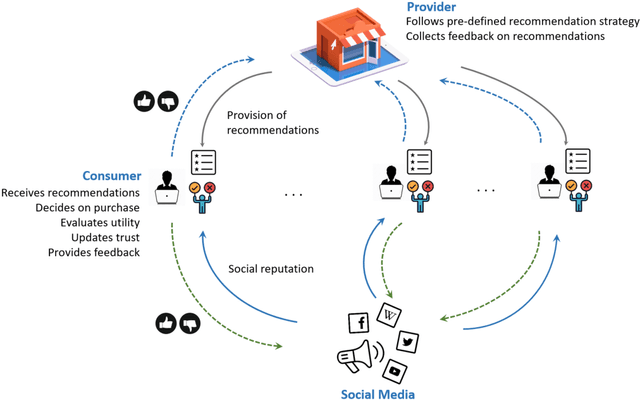
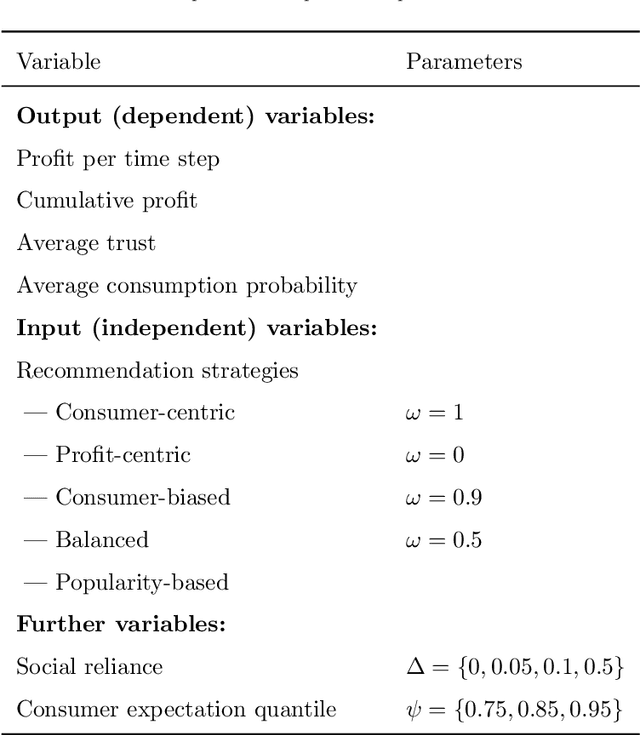
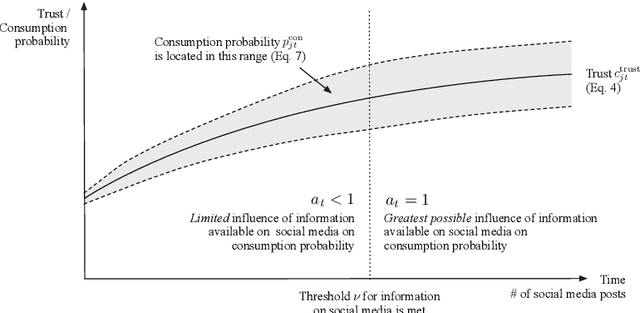
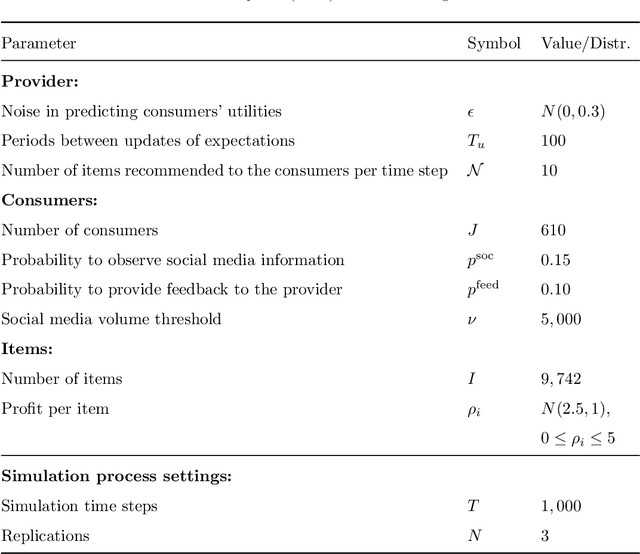
Abstract:Automated recommendations can nowadays be found on many online platforms, and such recommendations can create substantial value for consumers and providers. Often, however, not all recommendable items have the same profit margin, and providers might thus be tempted to promote items that maximize their profit. In the short run, consumers might accept non-optimal recommendations, but they may lose their trust in the long run. Ultimately, this leads to the problem of designing balanced recommendation strategies, which consider both consumer and provider value and lead to sustained business success. This work proposes a simulation framework based on Agent-based Modeling designed to help providers explore longitudinal dynamics of different recommendation strategies. In our model, consumer agents receive recommendations from providers, and the perceived quality of the recommendations influences the consumers' trust over time. In addition, we consider network effects where positive and negative experiences are shared with others on social media. Simulations with our framework show that balanced strategies that consider both stakeholders indeed lead to stable consumer trust and sustained profitability. We also find that social media can reinforce phenomena like the loss of trust in the case of negative experiences. To ensure reproducibility and foster future research, we publicly share our flexible simulation framework.
Understanding Longitudinal Dynamics of Recommender Systems with Agent-Based Modeling and Simulation
Aug 25, 2021Abstract:Today's research in recommender systems is largely based on experimental designs that are static in a sense that they do not consider potential longitudinal effects of providing recommendations to users. In reality, however, various important and interesting phenomena only emerge or become visible over time, e.g., when a recommender system continuously reinforces the popularity of already successful artists on a music streaming site or when recommendations that aim at profit maximization lead to a loss of consumer trust in the long run. In this paper, we discuss how Agent-Based Modeling and Simulation (ABM) techniques can be used to study such important longitudinal dynamics of recommender systems. To that purpose, we provide an overview of the ABM principles, outline a simulation framework for recommender systems based on the literature, and discuss various practical research questions that can be addressed with such an ABM-based simulation framework.
On the Effectiveness of Minisum Approval Voting in an Open Strategy Setting: An Agent-Based Approach
Sep 25, 2020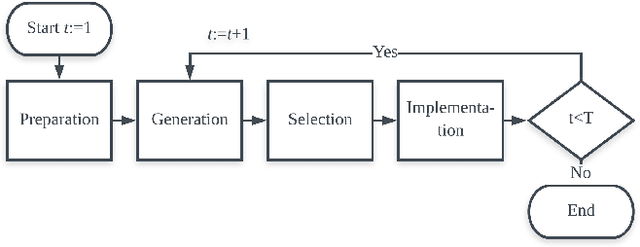
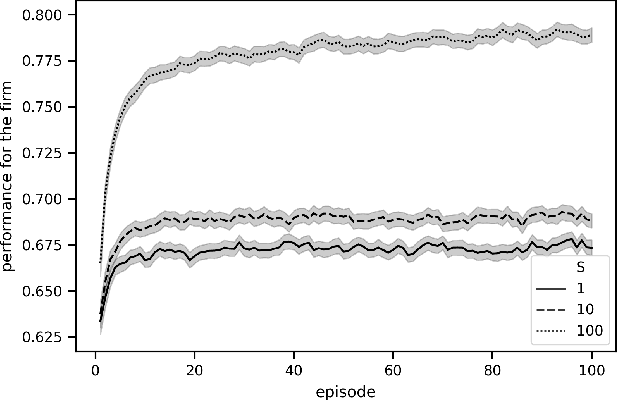
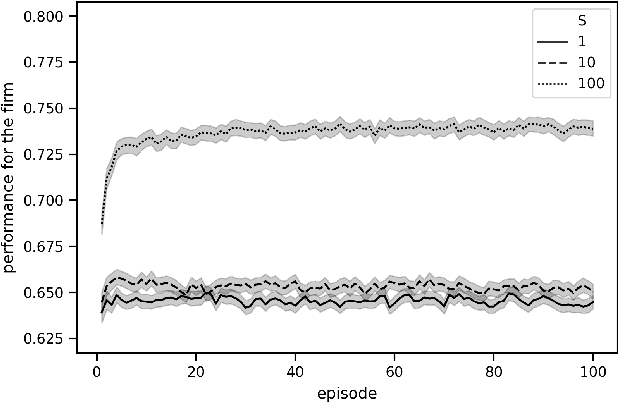

Abstract:This work researches the impact of including a wider range of participants in the strategy-making process on the performance of organizations which operate in either moderately or highly complex environments. Agent-based simulation demonstrates that the increased number of ideas generated from larger and diverse crowds and subsequent preference aggregation lead to rapid discovery of higher peaks in the organization's performance landscape. However, this is not the case when the expansion in the number of participants is small. The results confirm the most frequently mentioned benefit in the Open Strategy literature: the discovery of better performing strategies.
 Add to Chrome
Add to Chrome Add to Firefox
Add to Firefox Add to Edge
Add to Edge